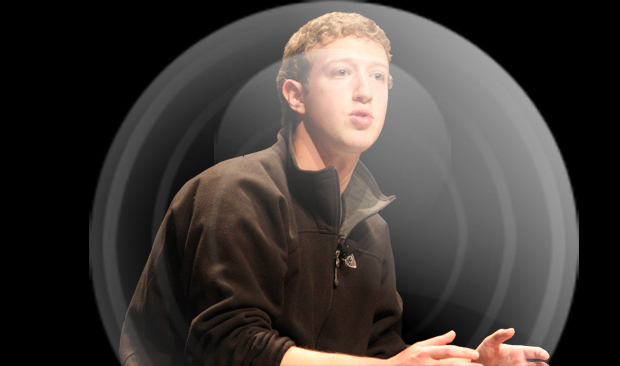A poll reveals that many investors think Facebook is overvalued. Google's outgoing CEO, meanwhile, insists Facebook is not a threat. Is Zuckerberg's baby an actual colossus--or just an inflatable one?

Record profits. Hollywood biopic. Time's Person of the Year. There's no doubt that 2010 was the year of Facebook. Everywhere you looked, you saw navy blue.
And investors saw green. Recently, with a bit of help from the folks at Goldman Sachs, Facebook was valued at $50 billion--that's billion with a "b"--dollars. Meanwhile, the press started wondering if giants like Google could keep up, as Facebook poached talent from their neighbors over in Mountain View.
And now--what, you thought it wouldn't happen?--the backlash. Bloomberg reports that a poll of global investors reveals that 69% of them think that Facebook is overvalued. Just 10% thought it was "properly valued" (and 4% thought it undervalued), while 17% had "no idea." Bloomberg conducted the poll over the past weekend, and revealed the results yesterday. One of the poll respondents, John J. Lee of PGB Trust & Investments, minced no words talking to Bloomberg: “Those investing in Facebook, expecting it to be the next Google, might be in for some bad news along the way. Eventually, all fads get cheaper copycat lookalikes. While being first to market makes Facebook a winner, another faster, stronger company with more something will come along and dilute its value.”
What that something might be is anyone's guess. But over half of the Bloomberg poll respondents even went so far as to agree that the Facebook valuation represents the "beginning of a dangerous new bubble." Said one of them, Luigi La Ferla of LTP Trade Ltd., "More than a bubble, Facebook is a manifestation of the rational excesses that only the financial markets are capable of when confronted with something without precedents and more importantly unexpected." He added: "There’s too little financial information and track history to value the company like this."
As for Google, it maintains that it doesn't even see Facebook as a threat. In a recent interview with Fortune, outgoing CEO Eric Schmidt said: "Facebook users tend to use Google search. Facebook's ads business does not displace our advertising. I'm somewhat perplexed by the obsession because I don't think the facts support it."
Ultimately, how secure is Facebook's position? What would a "cheaper copycat" look like? Recently, I interviewed a Carnegie Mellon computer scientist and data security expert named Latanya Sweeney. In Sweeney's view, Facebook's existence and popularity was predicated upon a popular misunderstanding of the value of our own data. As people come to more clearly realize the importance of securing their data and the value it has for other companies, their attitudes towards sharing that data will change, she says. Sweeney told me that, "there might emerge a social networking site that lets you use the site for free, but if the company wants to use your data, they compensate you."
It's an interesting thought experiment, then: If there emerged a Facebook copycat that paid you for sharing your data--call it Checkbook--would you sign up? If it offered all the same services as Facebook, and more, would you jump ship? After all, as soon as it became apparent that Google had more to offer than Alta Vista, you didn't hesitate.
But what's unique about Facebook is that the bulk of its value is not created by Facebook. Facebook matters to people because that's where their friends already are. People have made it their digital home. Their photo albums are there. It's their source for news about their friends. In the case of a social network--as opposed to the case of a search company or other digital services company--being first counts. When people find a home, they are reluctant to move. Especially now.
Facebook may or may not be valued properly. But it's here to stay. If it's a bubble, it's one that will, at worst, slightly contract. No one's going to pop it anytime soon.










No hay comentarios:
Publicar un comentario
Y... ¿Cuál es tu opinión?